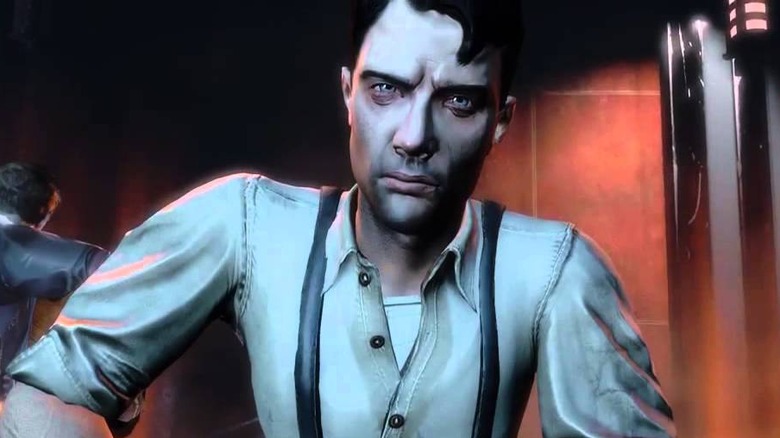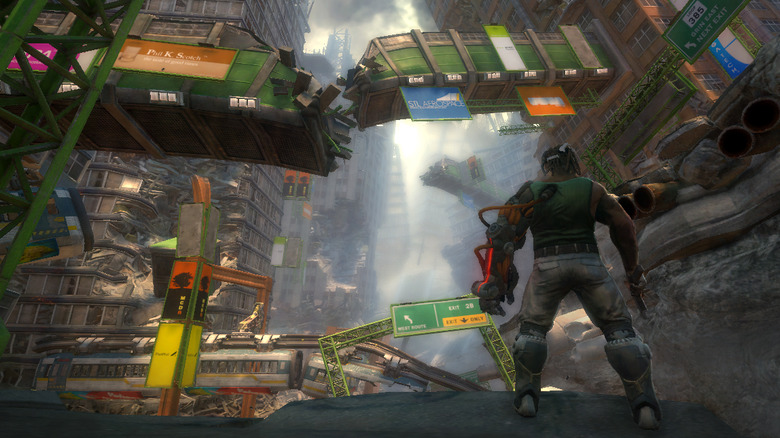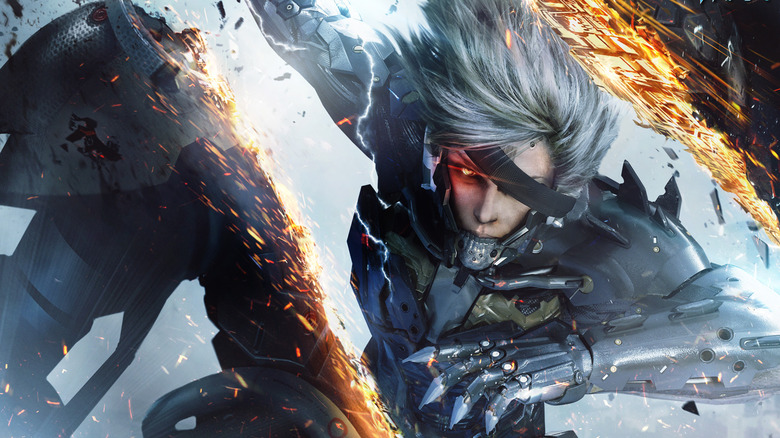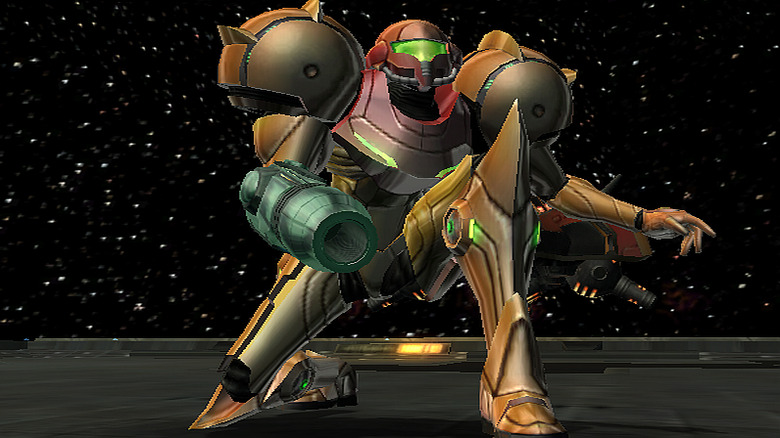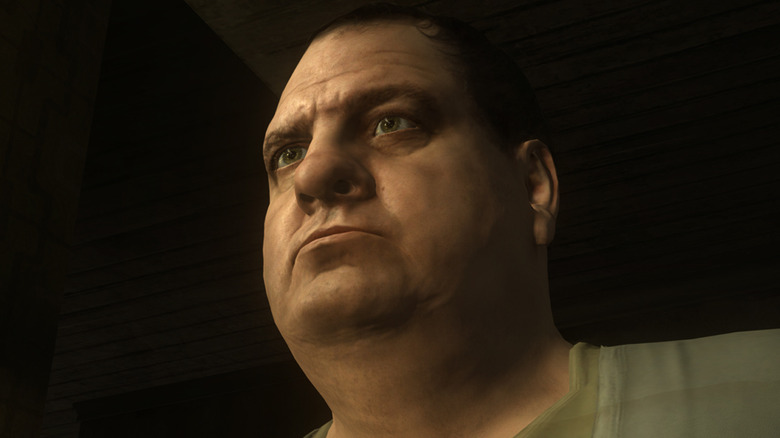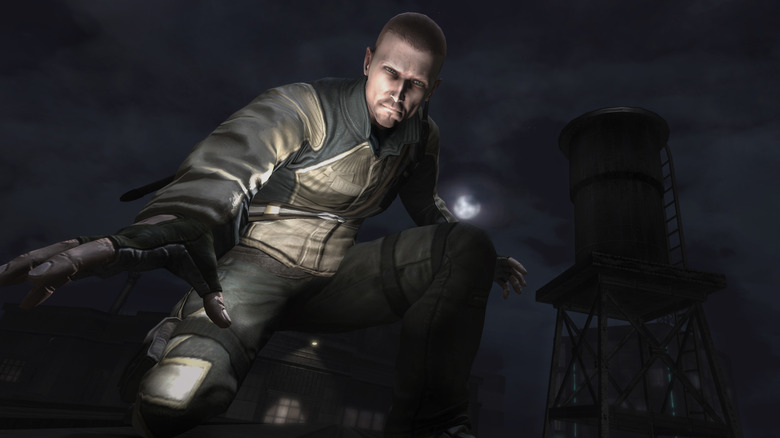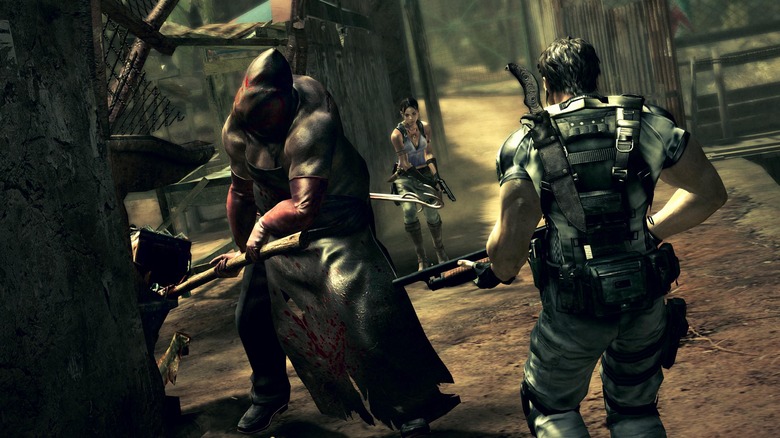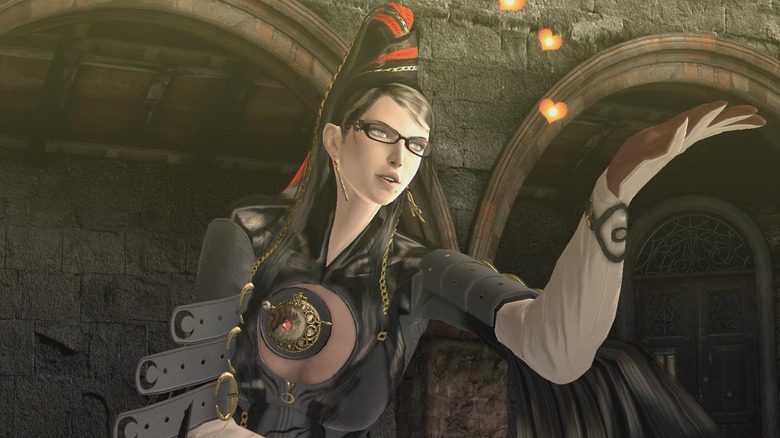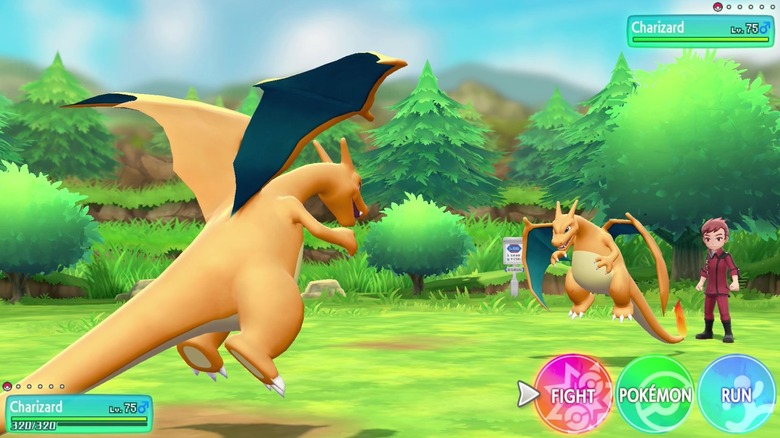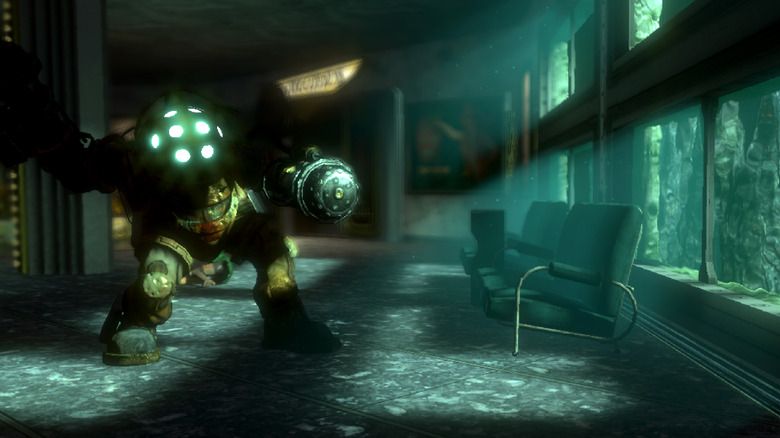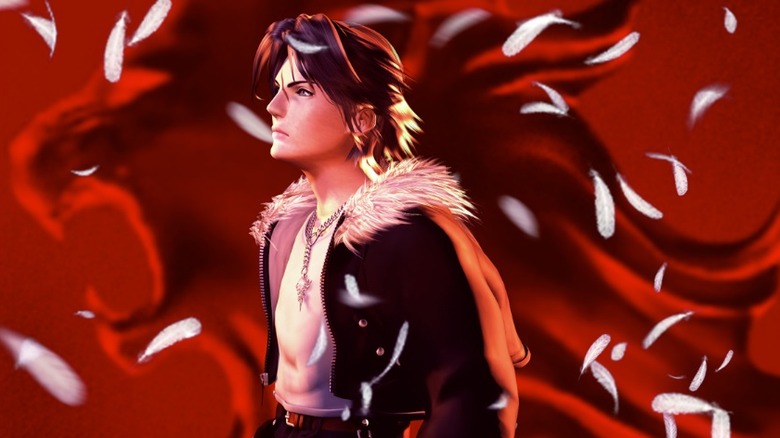Video Game Plot Twists That Were Actually Insulting
A good plot twist can elevate entertainment to almost mythical levels. Think of films that completely disguised a big twist or video games that revealed some perfectly hidden detail, making you rethink the hours you had already spent with it. BioShock's "Would you kindly?" moment. Knights of the Old Republic's Darth Revan revelation. Our brains are wired to love plot twists — it's science — so the best ones help to raise already strong games to mythical levels of reverence.
Since plot twists are so effective, a lot of games and movies try for them ... with varying results. A bad plot twist won't ruin a game like a good plot twist can make one, but it can still be laughable when developers think they are being much more clever than they actually are. We're talking The Village instead of The Sixth Sense.
Keep in mind that some of these insulting twists come from otherwise good games — in fact, it makes it even worse when the game is strong but lays an egg during a pivotal reveal. Here are our picks for some seriously insulting plot twists.
Bionic Commando - Your mechanical arm is your wife (really)
The original Bionic Commando is possibly the most '80s video game of all time. You play as Nathan "Rad" Spencer and, in the original version, you actually battle Nazis in an alternative history where Hitler has been resurrected. Hitler was changed to Mr. Badd in the U.S. release, but still.
Gamers love grappling hooks, making Bionic Commando's central mechanic a blast. A niche game, a dated plot, and it's developed by Capcom? Of course it needed to be remade! The plot got overhauled in 2009's Bionic Commando, complete with a shady government organization and the introduction of Spencer's missing wife, Emily. The driving force for Spencer is the search for his wife. Is she a spy? Was she kidnapped? Is she secretly evil?
No. She's his arm. As the game shows, cybernetics need to bond on an emotional level with their host in order to work perfectly. So she's in there. Just ... being a grappling hook arm. Not only does this raise a whole host of weird questions, but it is absolutely perfect for inappropriate jokes. They swung for the fences with the Bionic Commando twist, and it seems like they overthought things a bit.
Metal Gear Solid 2 - Sorry, did you all like Snake?
Metal Gear Solid was an absolute revelation upon its release for the PlayStation in 1998. It combined amazing stealth gameplay, a bonkers (but fun as hell) storyline, and it fleshed out and brought to life a totally badass protagonist, Solid Snake. Series mastermind Hideo Kojima had seemingly unleashed his masterpiece on the world — was it even possible for a sequel to deliver?
It certainly appeared so upon first playing it. Metal Gear Solid 2: Sons of Liberty looked to be a continuation of everything that made the first game great. Solid Snake, sneaking through military installations, hiding in boxes, blowing up nuclear missile-toting mechas.
Then you finish the prologue, and Snake dies.
Well, not really. But that's what MGS2 would have you believe. It then puts you in control of Raiden (not the Mortal Kombat one), whose beautiful blonde locks and whiny demeanor make him seem more like a Final Fantasy side character than a hero who could fill the badass shoes of Solid Snake.
Raiden would eventually come into his own as the series progressed, but he certainly doesn't do it in this installment. The game was still great, but Kojima's bait-and-switch around the protagonist was brutal. It also gave us this, which is tough to unsee.
Metroid - Samus is a badass woman who ... takes her clothes off for you
This one is a little bit tricky. The actual twist itself was a game-changer — when Metroid came out in 1986, the video game industry was entirely male-focused (some would argue that hasn't changed in the 30+ years since, but that's another issue). If a video game character was a woman, she was some combination of these things: kidnapped, sexy, a sexy prize for beating the game, helpless, a bad guy (who was usually also sexy), or sexy. As the player combed through the labyrinthine world of Metroid, it seemed obvious that some sexy prize lady was going to be at the end of the mission.
If you beat the game quickly enough, it revealed Samus Aran, the protagonist, was the lady all along. Women can be badass heroes too, and Nintendo tricked you into figuring it out!
It sounds silly, but Samus being a woman was a very big deal in 1986. Where things get a little sketchy is with the "best" ending. If you beat Metroid in under one hour, Samus would strip down to her pixelated bikini and wave at you. Look, 1986 was a different time. But undercutting an element of inclusivity by saying, "Wait, if you beat it even faster, the video game lady will take off her clothes for you!" kind of defeats the purpose, doesn't it?
Heavy Rain - The identity of the Origami Killer makes no sense
Heavy Rain was a conceptually impressive piece of work, but it starts to break down the second you start to delve into it. There are ... a lot of plot holes in the search for the Origami Killer, and a lot of them don't even really take much digging. How does Madison have Jayden's phone number? How does climbing in a refrigerator save you from a house fire? Why does Ethan constantly wake up with origami in his hand?
Actually, that last one can be explained by some cut story elements, but why leave that aspect in the game at all in that case? Oh, right, to throw you off, even though it serves no actually purpose.
Shelby's reveal as the Origami Killer also makes no sense. How is he able to collect evidence from families years after the murder of their kids? Did no other police interview them in that span? How is such a physically unfit person doing all the things the Origami Killer does? Why does he save all the evidence he's collected for one moment to burn? Wouldn't a shrewd serial killer be smarter about something like that?
Surely there are some answers to these gaping plot holes. Maybe Jason knows? Let's find him and ask.
Infamous -Of course the bad guy is "you"
One of the most overused cliches in all of storytelling is "We're not so different, you and I." It's usually delivered by the villain to the hero at a climactic moment, trying to make the hero realize that they are actually villainous (or that the villain's actions are actually heroic). For being such a well-known trope, it still shows up in an awful lot of stories.
Infamous takes this cliche one step further ... into the realm of "Oh, come on. Really?"
It's almost fitting, actually, as Infamous is a fairly cliched superhero origin story. You play as an ordinary man named Cole who is given superpowers by a mysterious explosion. Soon, a villain named Kessler shows up, and an epic showdown is the only way this story can end.
In the final battle, Kessler's powers are remarkably similar to your own, although a bit stronger. Only through luck and teamwork does Cole come out on top, before Kessler reveals his final secret: he's actually you. Specifically, a Cole from the future of an alternate timeline.
Sigh.
He came back in time to develop your powers so you don't fail like he did and you can ... save the future? It's a convoluted, weird, and annoying way to wrap up the story.
Resident Evil 5 - Jill Valentine is the "mysterious" masked figure
The Resident Evil storyline is right up there with some of the most convoluted in all of video games. It has pulled off some pretty good twists over the years, but Resident Evil 5's twist failed to work because it fell into a pretty common trap: giving too much foreshadowing. By the time the game gets around to revealing that the "masked figure" is the allegedly deceased Jill Valentine, any player with half a brain has already figured it out.
When you watch an episodic drama like Game of Thrones, you can always piece together when a swerve is coming during the opening bit. "Previously on..." serves as a little reminder about characters that will play an important role in the coming episode, so a big reveal isn't undercut by viewers asking, "Wait, who is that again?" This can sometimes lead to the story's hand being revealed for eagle-eyed observers.
Resident Evil 5 reminds you so often that Jill is dead — but her body was never recovered — that it becomes blatantly obvious who you're dealing with by the time the game tells you the identity of the superpowered bodyguard you've been battling. Chris Redfield is the only one who's surprised.
Bayonetta - Cereza, who looks exactly like Bayonetta, is the young Bayonetta
Another case of a "Well, duh" twist. No one is playing Bayonetta for intricate, nuanced storytelling — and thank God for that. Sega packed as much action and winking humor into the game as possible, so it could be that the "reveal" about Cereza is just the writers trolling the players.
Cereza wears the same glasses as Bayonetta. She enjoys the same candy. She imitates her throughout the game. Of course it's her! How she got there is even more bizarre. Strap yourself in — Bayonetta's story is weird.
So, a sage named Balder has a baby (Cereza) with a witch named Rosa. That's a big no-no, so the baby was locked up to prevent her from ever learning to utilize her witch powers. However, Balder eventually got power hungry and wanted to utilize Cereza's powers to open the portals to Heaven and unleash destruction on the world. So, he teleported her into the future, enabling her to see Bayonetta (the future version of herself) in action, thus awakening her powers as a child.
Still following?
He would then be able to use Cereza's awakened abilities to free Jubileus, the Creator, from her prison and bring about the rapture. Again, whatever. Bayonetta is a game with a sexy librarian witch who blows up angels and takes selfies while she does it. The "twist," however, was obvious and unnecessary.
Pokémon Red & Blue - Your rival already beat the Elite Four
Your entire goal in Pokémon is to be the world's greatest Pokémon trainer — collecting every gym badge, catching every Pokémon out there, and eventually training them to defeat the Elite Four. After dozens of hours of training, traveling, and trials, the end is finally in sight. You've arrived at the Indigo Plateau with all eight gym badges, ready for the grueling battle.
Lorelei and her ice/water creatures. Bruno and his fighters. Agatha's Pokémon that all pack poison. And Lance with his mishmash of powerful monsters. You have to battle all four of them in a row, without trips back to heal your team. It's a grueling battle, and vanquishing Lance is proof that you are, indeed, the very best.
Psych! You still have to beat your jerk rival, who defeated the Elite Four a little bit earlier.
This moment is infuriating because it should be your moment. You've finally taken out the world's best Pokémon trainers, claiming your spot as the best around. Oh wait — too bad! Someone else just did that exact same thing! It downplays the gravity of the achievement when you realize that your rival — the one person who always stayed a step ahead — even achieves your ultimate goal before you can.
It's just lame. It should have been Professor Oak, anyway.
BioShock - Atlas is actually Frank Fontaine, nude and superpowered
Most people regard BioShock's big twist as the greatest in gaming history. If you don't know what it is, would you kindly stop reading this and go play through the game until you get there? We can wait.
Right? It's good.
There are other plot twists in BioShock as well, and not all of them worked with quite the magic that little phrase did. Another twist in the narrative involves the game's big bad – it seems like Andrew Ryan is who you will square off against when it's all said and done, but a couple swings of a nine iron knock that theory out the window.
Instead, you fight Ryan's rival, Frank Fontaine, who has been disguised as kindly old Atlas the whole time. Your guide betraying you should work, but it falls flat for a few reasons. It's fairly obvious that not everything is on the level with Atlas, it pales in comparison to the mind control twist, and it transforms the villain into a big dumb bullet sponge. In fact, PC Gamer writes that BioShock director Ken Levine actually issued an apology for the final boss, saying that the battle came about because the team "didn't have a better idea."
Final Fantasy VIII - Every single person has amnesia
Resident Evil, Metal Gear Solid, now Final Fantasy — sprawling, multi-game stories sometimes hit some hiccups. The Final Fantasy series loves to throw surprise villains at players, and twists in the storyline are generally par for the course. Final Fantasy VIII's plot twist is the worst of all, however, for abusing one of the most cliched of all story tropes: amnesia.
Lots of video game characters have amnesia. However, as Giant Bomb writes, it's more than one character in FF8. There are four different playable characters in the game with amnesia! And there are only six playable characters in the entire game, meaning over half of them have amnesia. And those amnesiac heroes all grew up together as orphans in the same home. That is just ... absurd.
The game explains this away by making amnesia a side effect of close proximity to Guardian Forces, FF8's summon monsters. Still, "hero with amnesia" is enough of a groaner that giving 66 percent of your main characters that same affliction is an insulting and lazy move.

